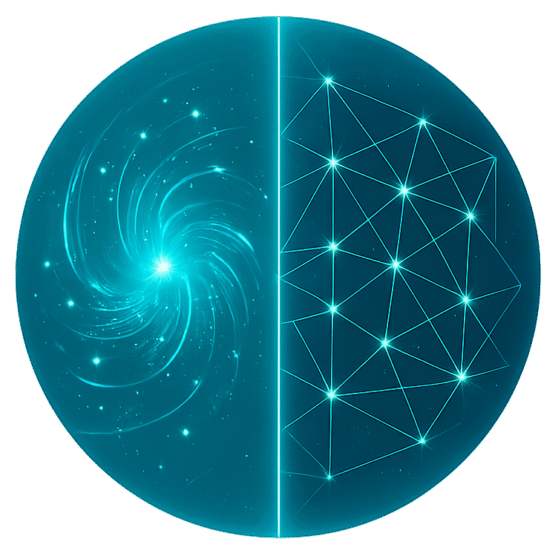The Benefits of Reading Books
Reading books provides a myriad of advantages that significantly contribute to personal development and well-being. One of the most noteworthy benefits is the enhancement of knowledge. Engaging with diverse genres and topics allows individuals to expand their understanding of the world, gain insights into various cultures, and explore new ideas. This accumulation of knowledge is not only intellectually enriching but also plays a crucial role in making informed decisions in everyday life.
In addition to enhancing knowledge, reading markedly improves vocabulary. Regular exposure to well-structured texts introduces readers to new words and phrases, which facilitates better communication skills. A broad vocabulary enables individuals to articulate their thoughts and feelings more effectively, fostering more meaningful interactions in both personal and professional contexts.
Cognitive function is another area that benefits from reading. Studies have shown that engaging with text stimulates brain activity, enhancing critical thinking and analytical skills. This active mental engagement is vital for maintaining cognitive agility, especially as individuals age. Furthermore, reading requires concentration and attention, which can improve overall mental acuity and focus.
Beyond cognitive benefits, reading serves as a powerful tool for mental health. It has been found to reduce stress levels, as immersing oneself in a captivating story can provide an escape from the pressures of daily life. This form of relaxation is crucial in promoting emotional well-being. Additionally, reading fosters empathy and emotional intelligence by allowing individuals to inhabit the experiences of diverse characters, leading to a deeper understanding of different perspectives and enhancing interpersonal relationships.
In summary, the benefits of reading books span across various dimensions, contributing to knowledge, vocabulary enhancement, cognitive function, and mental health, as well as fostering empathy. These advantages underscore the transformative power that reading can have on individuals, shaping not only their intellect but also their emotional landscape.
Choosing the Right Books for Personal Growth
Selecting the right books for personal growth is a vital component of one’s journey towards wisdom and maturity. The genres and authors one immerses themselves in can significantly influence their thought processes and emotional intelligence. To begin with, it is important to consider the impact of classic literature, which often embodies profound insights into the human condition. Titles such as “Pride and Prejudice” by Jane Austen or “Crime and Punishment” by Fyodor Dostoevsky encourage readers to contemplate moral dilemmas and develop empathy, nurturing essential personal growth.
In addition to classics, non-fiction books present another avenue for enhancing wisdom. Works by influential thinkers, such as Malcolm Gladwell or Yuval Noah Harari, challenge conventional perceptions and provoke critical thinking. These authors delve into complex social issues and historical contexts, equipping readers with a broader understanding of the world. Self-help literature also plays a role in this quest, offering practical strategies to navigate life’s challenges. Books such as “Atomic Habits” by James Clear encourage readers to implement manageable changes aimed at improving productivity and enhancing their overall well-being.
When creating a reading list, it can be beneficial to strike a balance among these genres. Aim to include a variety of perspectives and writing styles to foster a well-rounded intellectual experience. Additionally, it is advisable to periodically assess and update the reading list based on evolving interests and personal development goals. Recommendations for must-read titles might include “The Power of Now” by Eckhart Tolle for mindfulness, or “Mindset” by Carol S. Dweck for cultivating resilience. By selecting books that challenge one’s thinking and inspire personal development, the reader embarks on a transformative journey that enhances wisdom and self-awareness.
Books that Cultivate Intelligence and Wisdom
Reading is a profound avenue for personal development, particularly when it comes to cultivating intelligence and wisdom. A diverse array of books across various genres offers invaluable insights that can enhance one’s understanding of life, nature, and human behavior. Below is a curated list of influential titles that embody these attributes, along with a brief overview of their contributions to wisdom.
1. “Meditations” by Marcus Aurelius – This timeless work encapsulates the Stoic philosophy of self-discipline, rationality, and emotional resilience. Aurelius’ reflections encourage readers to harness their inner strength and adopt a perspective that values virtue over external circumstances, fostering a wise approach to life’s challenges.
2. “Thinking, Fast and Slow” by Daniel Kahneman – In this groundbreaking book, Kahneman presents an exploration of the dual processes of thought: the fast, intuitive thinking and the slower, more deliberate reasoning. By examining cognitive biases and decision-making, readers can enhance their intellectual discernment and cultivate a more nuanced understanding of rationality.
3. “Man’s Search for Meaning” by Viktor Frankl – Frankl’s poignant memoir about his experiences in Nazi concentration camps offers profound insights into the search for purpose. His psychological theories highlight the importance of meaning in life, encouraging readers to reflect on their values, desires, and the essence of existence itself.
4. “Sapiens: A Brief History of Humankind” by Yuval Noah Harari – This historical narrative provides a sweeping overview of human evolution and societal development, encouraging critical thinking about contemporary issues and our place in the world. Harari’s insights stimulate intellectual curiosity and prompt readers to ponder the complexity of humanity.
Through these varied genres—philosophy, psychology, and science—these selected books empower readers to cultivate their intelligence and deepen their wisdom, enabling them to navigate life with greater insight and understanding.
The Journey to Maturity Through Literature
Reading books serves as a pivotal mechanism for fostering emotional and intellectual maturity. As individuals immerse themselves in various narratives, they are introduced to a spectrum of perspectives that challenge their preconceived notions and broaden their understanding of the world. Literature often encapsulates complex ideas and dilemmas that resonate with the human experience, prompting readers to engage in critical thinking and self-reflection. This engagement leads to a deeper comprehension of their own emotions and the emotions of others, a cornerstone of maturity.
Through the exploration of diverse characters and plots, readers are encouraged to empathize with differing viewpoints and cultural contexts. This exposure is instrumental in cultivating an appreciation for diversity and fostering open-mindedness. Consider the words of esteemed author Maya Angelou, who expressed that “we all should know that diversity makes for a rich tapestry, and we must understand that all the threads of the tapestry are equal in value no matter their color.” Such insights gleaned from literature can inspire readers to reflect on their societal roles and relationships, contributing to personal growth.
The journey to maturity is often accompanied by lessons from significant figures in literature. Albert Einstein, known not only for his scientific contributions but also for his love of reading, asserted that books “are the means for understanding life’s complexities.” Many successful individuals attribute their comprehension of life to the extensive reading they have pursued throughout their lives. From great philosophers to prominent leaders, the common thread is the recognition that literature serves as a guiding light, illuminating pathways toward a more profound comprehension of existence.
In conclusion, embracing literature not only enriches one’s intellect but also fortifies emotional resilience, fostering a sense of maturity. By embarking on one’s own literary journey, readers can unlock new dimensions of wisdom, paving the way for lifelong learning and personal evolution.



